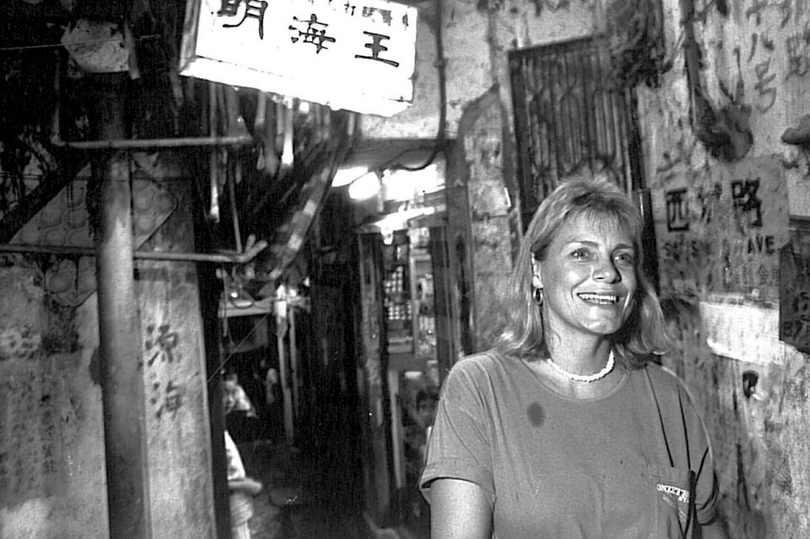At the 43rd Hong Kong Film Awards, which was recently concluded, "Twilight of the Warriors: Walled In" swept nine major awards, becoming the biggest winner of the night. Among some of its most prestigious awards, Best Film, Best Director, Best Screenplay, etc., the film awakens the collective memory of Hong Kong's past through its gory brotherhood of gangsters and delicate, sincere portrayal of human nature.
In the film, a stowaway named Chan Lok-kwan ends up in Hong Kong and, in a struggle to survive, mistakenly finds refuge in the Walled City. Amidst a mix of people from all walks of life, he discovers a sense of belonging. Louis Koo's character, "Brother Lung," serves as the patriarch of the Walled City, maintaining order in this gray area through underworld codes of conduct. Sammo Hung plays the "Boss," a triad kingpin symbolizing the harsh survival rules of the city.
Through intense action scenes and a damp, gloomy visual style, the film recreates the suffocating atmosphere of Kowloon Walled City, portraying its narrow alleyways, exposed wires, and perpetually dripping walls. But what the director truly aims to tell is not a story of crime, but how humanity can shine even in desperate circumstances. Chan Lok-kwan forms a life-and-death bond with a group of outcasts, eventually using the code of honor to stand against tyranny. Their resistance is filled with tragic poetry, as if to declare that even in the darkest corners, human dignity must never be trampled.
A Redemption Story More Stirring Than Fiction
Yet in the real history of the Walled City lies a story even more compelling than fiction. It is a narrative about how faith can illuminate the abyss. In 1966, a 22-year-old British girl set foot in Hong Kong. She carried not a detailed plan nor abundant resources, but a simple and steadfast belief that God would lead her to her mission. Her name was Jackie Pullinger. She had no idea she was about to enter what had been described as "one of the darkest corners on earth."
Once, the Kowloon Walled City was the very antithesis of modern urban civilization: narrow and damp alleyways, buildings blocking out the sky with streets full of drugs, gangs, prostitution, and violence. It was a place devoid of law and government. Only raw survival instinct and an unending cycle of sin remained. While most people avoided it at all costs, Jackie Pullinger entered without hesitation.
What sets her apart is that while the film portrays violence with fists, the weapon Jackie brings is something far more intangible and enduring, the gospel itself.
Upon arrival, Jackie quickly realizes that preaching with words alone is ineffective. Jesus' name is familiar in the Walled City, but the word "church" has long been associated with distance, coldness, or even hypocrisy. She has to prove through action that what she is offering is not a Western moral code, but a love that is real, gentle, and self-sacrificial.
Instead of holding crusades, she starts a youth club, beginning with the most marginalized, the drug-addicted teens whom society has given up on. She slowly builds trust. Despite facing mockery, sabotage, and even threats, she never backs down, because she firmly believes that real transformation comes from the work of the Holy Spirit, not human eloquence.
Just as Chan Lok-kwan ultimately realizes in the film that the most valuable thing to protect is not the turf, but the bonds of loyalty and trust forged in blood and fire. Jackie, too, through long periods of companionship and prayer, sees souls imprisoned by sin and addiction gradually break free and be reborn.
One gang member, after countless failed attempts to quit drugs, is finally freed from addiction during a prayer. This is not psychological suggestion or sheer willpower, but a genuine release of the soul. They are meant to sink into despair, but because someone believes in them at all costs, believing they could be loved and renewed. They truly begin to live differently.
Among the ruins of the Walled City, an invisible sanctuary is being quietly built, not one made of bricks and mortar, but of one reborn soul after another. They are no longer "trash" and no longer "hopeless criminals," but new creations, carrying their scars and pain, learning to love those around them.
The Power of Love Triumphs Over All
In the film, the Walled City eventually collapses, and the tale of the brotherhood comes to an end. However, in real life, when the Kowloon Walled City was demolished in the early 1990s, those who had once struggled in the dark had already carried on with renewed lives elsewhere. The organization Jackie founded, St. Stephen's Society, continues to provide Gospel-based rehabilitation and support to recovering drug addicts, prostitutes, and triad members.
Perhaps this is the true victory: not defeating a gang boss, nor reclaiming a city, but leaving behind a thread of heavenly light in the darkest corners of the world. That light may be faint, but it is enough to illuminate lost souls and guide them home.
Reflecting on Jackie Pullinger's story draws us to reconsider: what is true strength? To the world, strength might mean fists, territory, money, and status, but in God's kingdom, strength is often shown through weakness, suffering, and love. She didn't rely on organizations, resources, or status but only on a heart that listened and obeyed, walking straight into humanity's depths of despair.
She had no grand slogans, no earth-shattering feats. She had only a quiet presence and prayers, patiently waiting for one soul after another to wake up. She witnessed gangsters repenting, addicts breaking free, and prostitutes reclaiming their dignity. Yet, none of it was by her own power, but through Jesus Christ, the one who can raise the dead even from ruins.
This, too, is the message the film subtly conveys: that true heroes aren't those who achieve fame in a single battle, but those who light a lamp in the darkness and persist without expecting anything in return.
The tremendous success of "Twilight of the Warriors: Walled In" is undoubtedly a tribute to the spirit of that era. Let's hope that the tribute remains not only in the cinema but also echoes in our hearts so that we may still choose to love, to believe, and to ignite that small, unquenchable light in every seemingly hopeless situation. In the cracks of a broken world, she sowed seeds of faith, which continue to sprout and grow toward the light of eternity.
Each of us can follow the same calling, to shine our own light, just as Jackie Pullinger once said, "It was God's wisdom that sent me. I was just doing what He made me for. That's no credit to me; it's all credit to Him. If He's made you for something, you just do it." Out of the cinema and within the realm of faith, we are invited to believe together: No matter how deep the darkness is, the light will shine through in the end.
(Originally published by the Gospel Times, the author is a preacher at a church in Anhui Province.)
- Translated by Charlie Li












